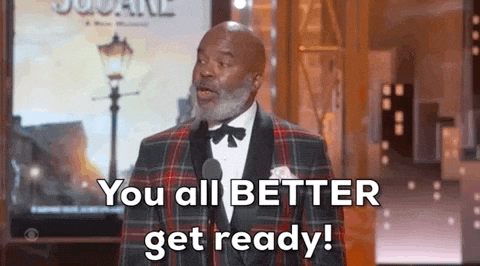In a text exchange with my friend Javier, who always checks in on me, they mentioned a recent Instagram reel from the brilliant somatic practitioner and thinker, Prentis Hemphill. In the reel, Prentis said, "We are emotionally and relationally underdeveloped for the time we are in." Those words fu*ked me up because they’re true.
The world is moving faster than we know how to hold. We are being asked to navigate crises, build movements, repair harm, and show up for one another in ways that many of us were never taught. We are living in times that demand depth, but we have been conditioned for surface-level interactions.
The gap between what this moment requires and what we have the emotional capacity to carry is wide.
We have more ways to be in touch than ever before, but somehow we feel more disconnected. We are quick to call each other out but struggle to call each other in. We want accountability, but we haven’t built the relationships necessary to hold it with care.
We see this in our movements, in our friendships, in our work, and in the way we navigate conflict. We struggle to stay when things get hard. We abandon instead of repair. We want transformation, but we are afraid of the discomfort it requires. It isn’t because we don’t care. It’s because we haven’t been taught how. Is it a lost cause? Nah. We can work towards it, it will just a lot of fu*king work. Work that we have to be ready to do.
Most people don’t realize they are emotionally and relationally unprepared for the time we are living in. Personally, I’ve see it in the way they respond to things going on, in the way they react to conflict, in the way fear and frustration take over before reflection even has a chance to settle in. Emotions feel ungrounded. Irritation flares up quickly. People seem easily rattled, as if their nervous systems are on edge, which they are.
It almost feels like a regression into childlike behaviors. A knee-jerk need for control, for immediate validation, for things to be simple when they are anything but. The discomfort of uncertainty, of complexity, of holding multiple truths at once, feels unbearable to many. So instead of sitting with it, they lash out. Or shut down. Or pretend not to notice at all.
I’m not a psychologist or a therapist, but I can feel it. Something is different. The way people move through the world, the way they react instead of respond, the way they either overconsume every crisis or numb themselves entirely are all signals that something in us is underdeveloped.
This kind of emotional underdevelopment doesn’t just affect individuals. It shapes the culture. It determines how we show up in our relationships, our movements, and our communities. It creates a collective fragility that makes it harder to do the real work of healing, of justice, of change.
When people are not rooted in themselves, when they haven’t built the emotional and relational muscles to hold discomfort, they become more susceptible to fear, to misinformation, to reactionary thinking. And when that happens at scale, it makes it easier for harm to continue.
So the question isn’t just about recognizing this pattern. It’s about asking: What do we do about it?
How do we cultivate emotional and relational depth in a time that demands it? How do we become people who can hold complexity without crumbling? How do we move from reaction to response, from fear to clarity, from avoidance to presence?
Not understanding these questions will allow us to become exposed and vulnerable. It will show us that we aren’t just be unprepared for this moment, we will be unprepared for the future that is trying to be born.
Our work is not just about fighting for change. It is about becoming the kind of people who can sustain it. This means we have to get a hold of our emotional and relational intelligence.
It means learning how to slow down when everything in us wants to speed up.
It means choosing curiosity over assumption.
It means practicing repair so that conflict doesn’t mean collapse.
It means committing to a kind of accountability that doesn’t exile but transforms.
It means understanding that justice, healing, and liberation are not solo projects. They are relational. They require us to be in community, even when it is hard.
We can grow into the people that the future needs us to be.
We can learn to hold complexity.
We can move beyond critique and build something better.
We can stretch ourselves into leaders, organizers, friends, and lovers who don’t just fight for a new world but have the emotional and relational capacity to hold it.
We must.
We must commit to becoming emotionally and relationally developed for the time we are in. We must practice staying, healing, and moving with intention. We need to make sure that when the future calls us forward, we are ready to meet it.
We need to get ready and now is the time to do that.




